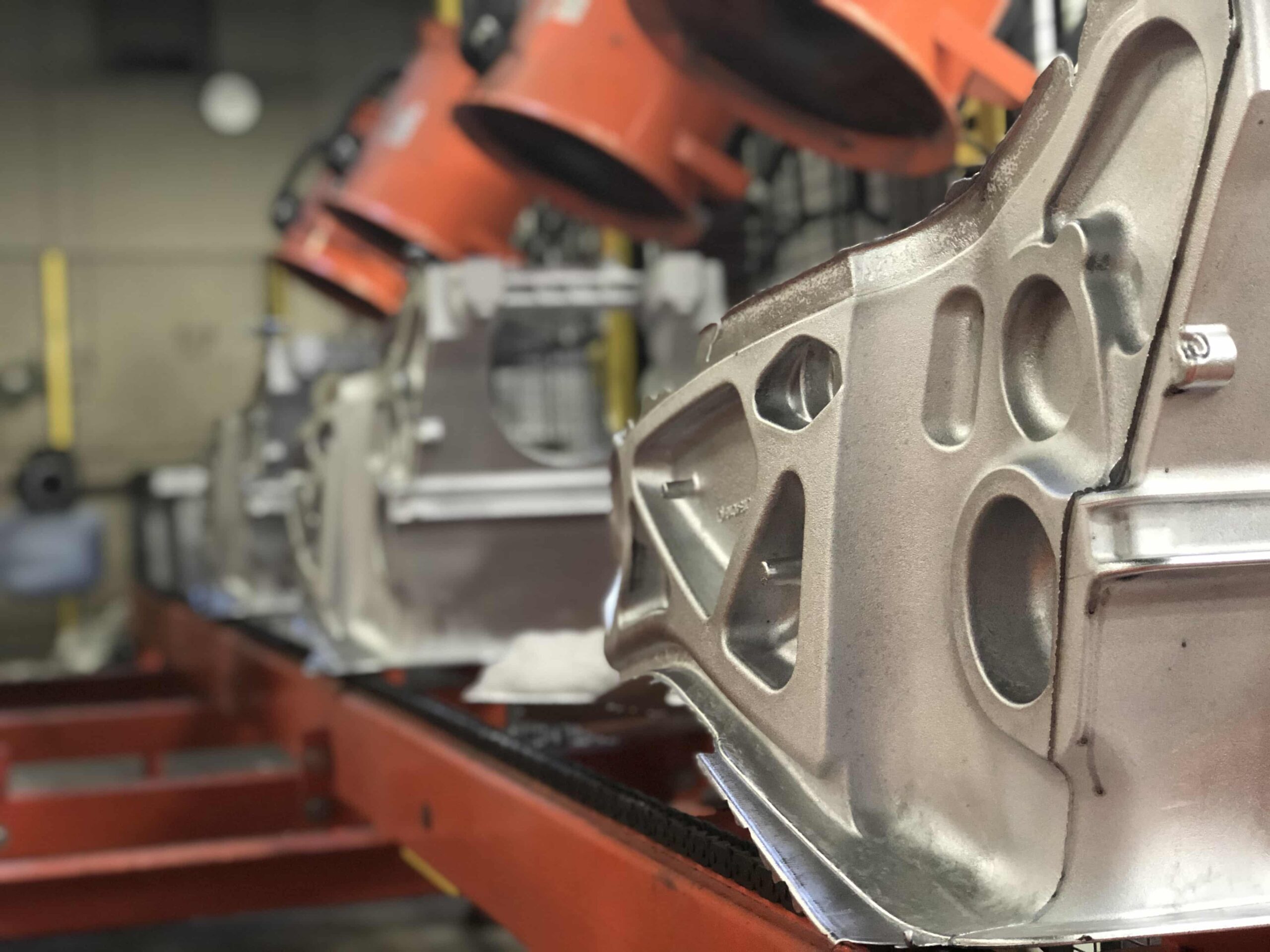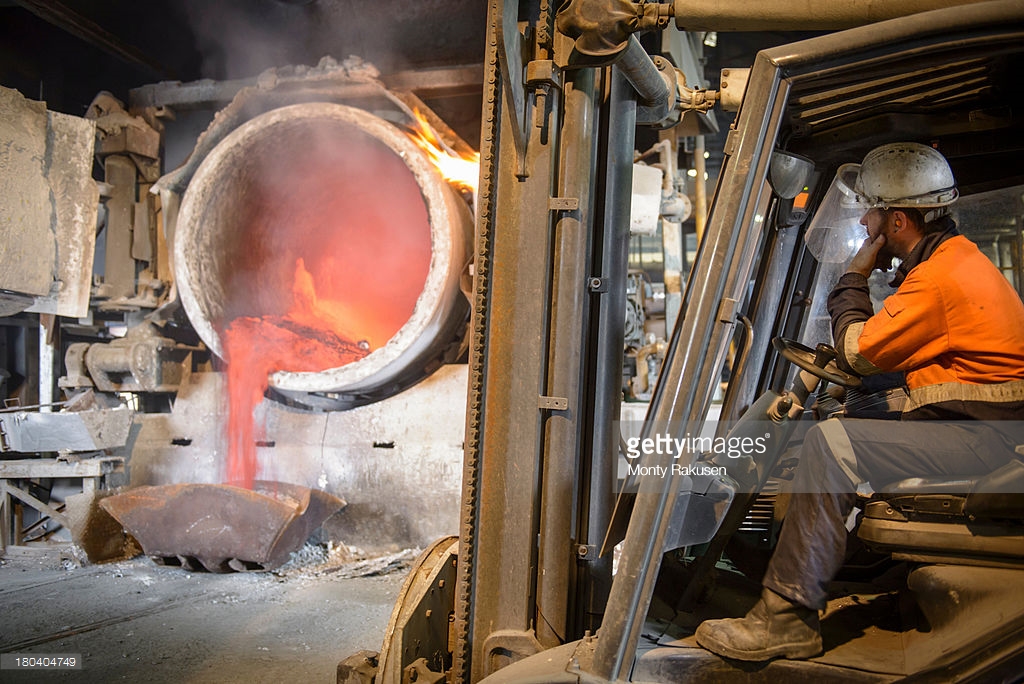Definitive Overview of Wisconsin Aluminum Foundry and Its Impact on U.S. Manufacturing
Wiki Article
A Comprehensive Overview to the Conveniences of Making Use Of Aluminum From Foundries
Aluminum from foundries offers a series of advantages that make it a valuable material throughout various industries. Its light-weight nature adds to cost financial savings in transport and improves total item efficiency. In addition, aluminum's remarkable resistance to corrosion guarantees long life and minimizes upkeep demands. Nevertheless, the advantages extend past these aspects (Aluminum Foundry). Understanding the full spectrum of aluminum's buildings and their implications can expose even much deeper insights right into its function in modern-day applicationsRecognizing Foundry-Grade Aluminum
Foundry-grade aluminum is a customized material renowned for its outstanding residential properties and versatility in different applications. This kind of aluminum is frequently produced through regulated spreading processes, permitting precise control over its structure and microstructure. Consequently, foundry-grade aluminum displays premium mechanical buildings, including outstanding toughness and corrosion resistance, making it appropriate for demanding settings.Along with its structural honesty, foundry-grade aluminum can be conveniently built into intricate shapes, providing designers and designers with flexibility in their jobs. Its capability to stand up to heats further enhances its appeal for markets such as vehicle and aerospace, where performance and dependability are vital. Foundry-grade aluminum is commonly recyclable, contributing to sustainability initiatives. By using this product, makers can accomplish an equilibrium of efficiency, sturdiness, and ecological obligation, making foundry-grade aluminum a favored option for a vast array of commercial applications.
Light-weight Characteristics and Their Advantages
The light-weight residential properties of aluminum from foundries use considerable advantages in different applications. Lowered transportation costs can be attained as a result of the reduced weight, permitting a lot more effective logistics. In addition, the enhanced item efficiency stemmed from making use of lighter products can cause enhanced performance and individual experience.Lowered Transportation Expenses
Aluminum's lightweight buildings considerably add to lowered transportation costs, making it an eye-catching selection for numerous markets. When compared to heavier materials such as steel, aluminum permits lighter lots, enabling vehicles to move even more items effectively. This reduction in weight can lead to considerable savings on fuel consumption, as lighter lorries call for less power to run. Additionally, the capability to move bigger amounts without going beyond weight limitations boosts logistical performance. Industries such as automotive and aerospace benefit especially from these benefits, as they can optimize shipping procedures and lower total functional costs. Consequently, using aluminum from foundries not only enhances transport however likewise supports lasting methods by lessening carbon exhausts related to hefty products transport.Improved Product Performance

Deterioration Resistance: A Secret Advantage
Aluminum from foundries uses outstanding deterioration resistance, largely as a result of its natural oxide layer. This protective finishing kinds when aluminum is subjected to air, protecting against more oxidation and deterioration. As a result, products made from aluminum can exhibit long-lasting longevity, making them excellent for various applications in challenging settings.Natural Oxide Layer
The natural oxide layer that forms on aluminum surface areas acts as a crucial defense against rust. This slim, clear obstacle develops when aluminum is subjected to oxygen, properly shielding the underlying metal from numerous environmental variables. The oxide layer is both secure and sturdy, making sure that aluminum maintains its honesty over time. Unlike other steels that might corrode much more quickly, aluminum's oxide layer prevents the development of corrosion and other damaging compounds. This particular is especially beneficial in markets where materials are exposed to dampness or harsh chemicals. The presence of the all-natural oxide layer contributes considerably to the durability and reliability of aluminum products, making it a favored option in numerous applications.Lasting Longevity
While many products yield to the wear and tears and environmental exposure, the long-lasting resilience of aluminum stands apart, largely because of its exceptional corrosion resistance. This resistance is associated to an all-natural oxide layer that creates on its surface, effectively shielding the steel from dampness, chemicals, and other corrosive representatives. Unlike steel, which can corrosion and degrade gradually, aluminum remains undamaged, making it ideal for numerous applications, consisting of building and construction, automotive, and aquatic industries. Its light-weight nature, integrated with resilience, permits for reduced maintenance prices and longer lifespans in products. Aluminum from foundries provides a lasting choice that reduces substitute regularity, contributing to both financial performance and environmental duty. This durability boosts its charm in many applications.The Recyclability of Aluminum
Given its comprehensive usage across various sectors, the recyclability of aluminum offers a significant environmental benefit. Aluminum can be recycled forever without losing its buildings, making it a prime candidate for lasting techniques. The reusing procedure requires only a fraction of the power required to produce brand-new aluminum from resources, minimizing greenhouse gas exhausts and conserving all-natural resources. In addition, the recycling of aluminum diverts waste from landfills, contributing to a lot more reliable waste monitoring systems.
Cost-Effectiveness in Different Applications
Countless markets recognize aluminum's cost-effectiveness, making it a favored option for numerous applications. Its light-weight nature minimizes transportation prices and energy consumption, greatly adding to general savings. In manufacturing, aluminum's malleability permits effective shaping and forming, decreasing waste during production.Furthermore, aluminum's longevity guarantees longevity, which decreases the need for frequent replacements and maintenance. The product's rust resistance additionally equates right into lower lasting prices, as it requires less protective covering and treatment contrasted to various other metals.

Sustainability and Environmental Influence
Aluminum's cost-effectiveness is complemented by its sustainability and positive ecological influence. The steel is highly recyclable, with around 75% of all aluminum generated still in use today. This recyclability considerably reduces the demand for resources extraction, lessening energy intake and linked greenhouse gas discharges. Foundries play a vital duty in the reusing procedure, using advanced modern technologies to repurpose scrap aluminum efficiently.Furthermore, aluminum manufacturing from recycled product takes in only about 5% of the energy needed for key aluminum manufacturing. This considerable energy financial savings converts to lower carbon impacts, straightening with worldwide sustainability goals. Furthermore, aluminum's lightweight nature enhances fuel effectiveness in transport applications, further contributing to decreased exhausts throughout its lifecycle. As industries increasingly focus on lasting techniques, aluminum from foundries becomes a positive selection, advertising ecological stewardship while sustaining financial growth.
Frequently Asked Concerns
What Are the Typical Applications of Foundry-Grade Aluminum?
Typical applications of foundry-grade aluminum consist of vehicle parts, aerospace components, machinery, building materials, and consumer items. Its lightweight nature, deterioration resistance, and superb mechanical buildings make it suitable for varied markets and producing processes.Just How Is Foundry-Grade Aluminum Produced?
Foundry-grade aluminum is created via melting aluminum scrap or ingots, followed by alloying with various other metals. The molten aluminum is after that cast into mold and mildews, permitting it to solidify into different forms for diverse applications.What Are the Security Factors To Consider When Collaborating With Aluminum?
navigate to these guys Security considerations when working with aluminum consist of correct ventilation to prevent inhaling dirt, use individual safety devices to stop skin contact, and recognition of fire hazards related to liquified aluminum during processing and spreading.How Does Foundry-Grade Aluminum Contrast to Other Metals?
Foundry-grade aluminum provides a remarkable strength-to-weight ratio contrasted to several steels, along with excellent corrosion resistance and thermal conductivity. Its flexibility and ability to be conveniently formed make it a recommended choice in various applications.What Upkeep Is Required for Aluminum Products?
Aluminum items call for marginal maintenance, mainly involving regular cleansing to stop oxidation and dust build-up (Aluminum Castings). Safety finishes may improve resilience, while regular evaluations can ensure architectural stability and resolve any wear or damage immediatelyFoundry-grade aluminum is a specific material renowned for its outstanding residential properties and flexibility in various applications. Leveraging light-weight buildings, aluminum improves product performance across different applications. Unlike steel, which can rust and weaken over time, aluminum stays undamaged, making it suitable for various applications, including building, automotive, and marine markets. Aluminum production from recycled material takes in only about 5% of the energy needed for address main aluminum production. Foundry-grade aluminum is created with melting aluminum scrap or ingots, followed by alloying with other metals.
Report this wiki page